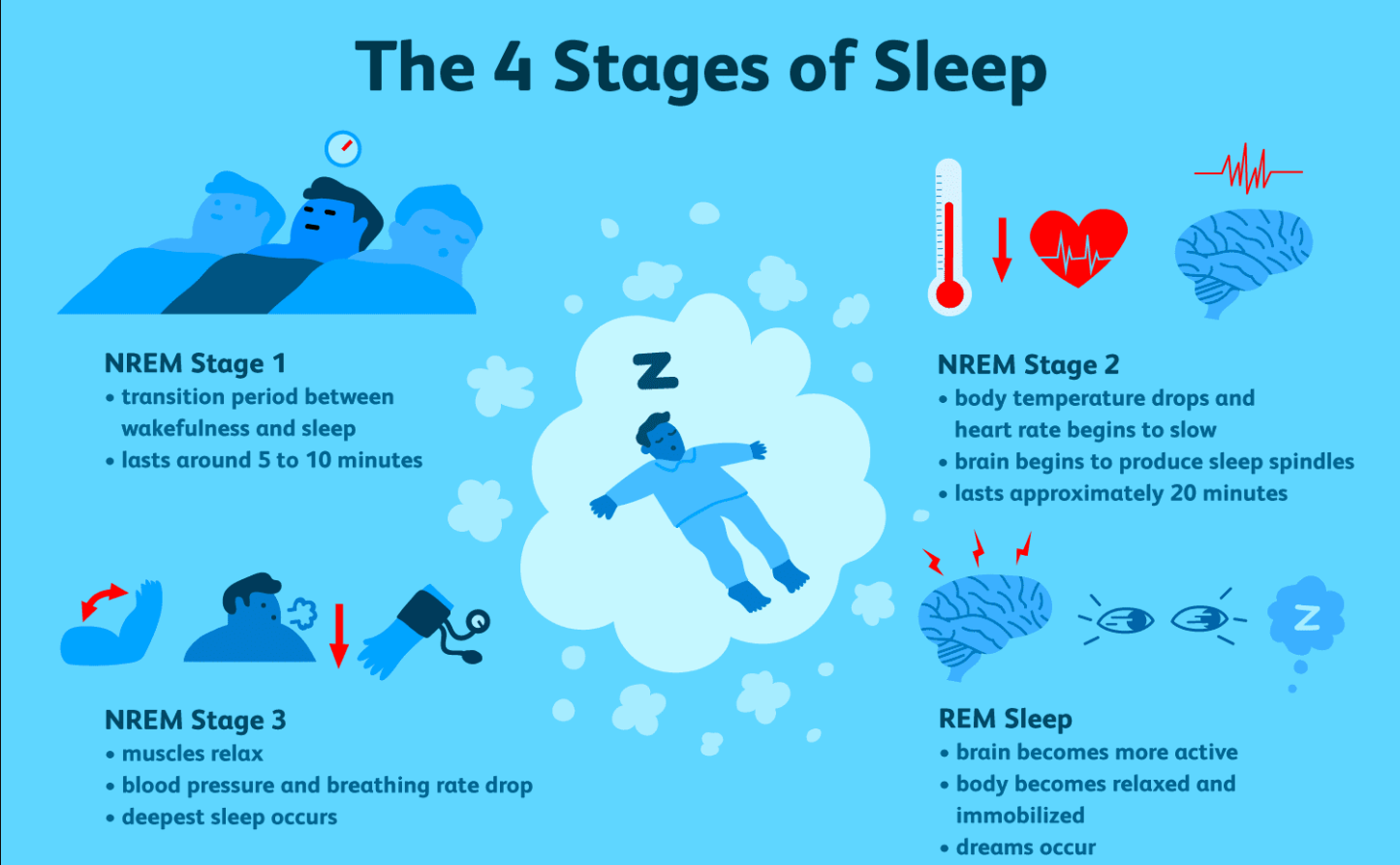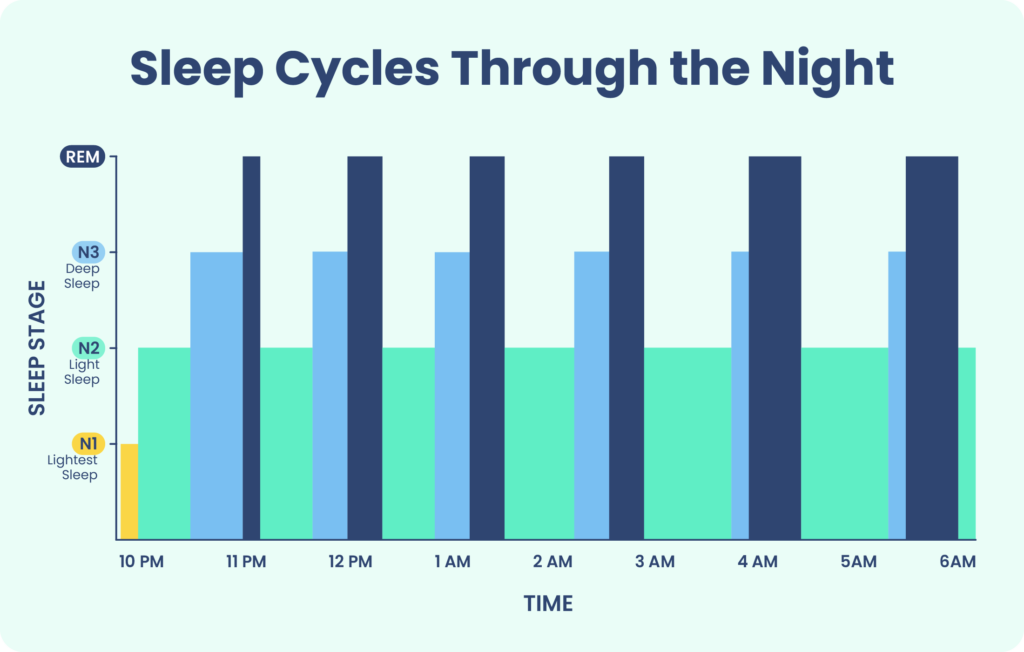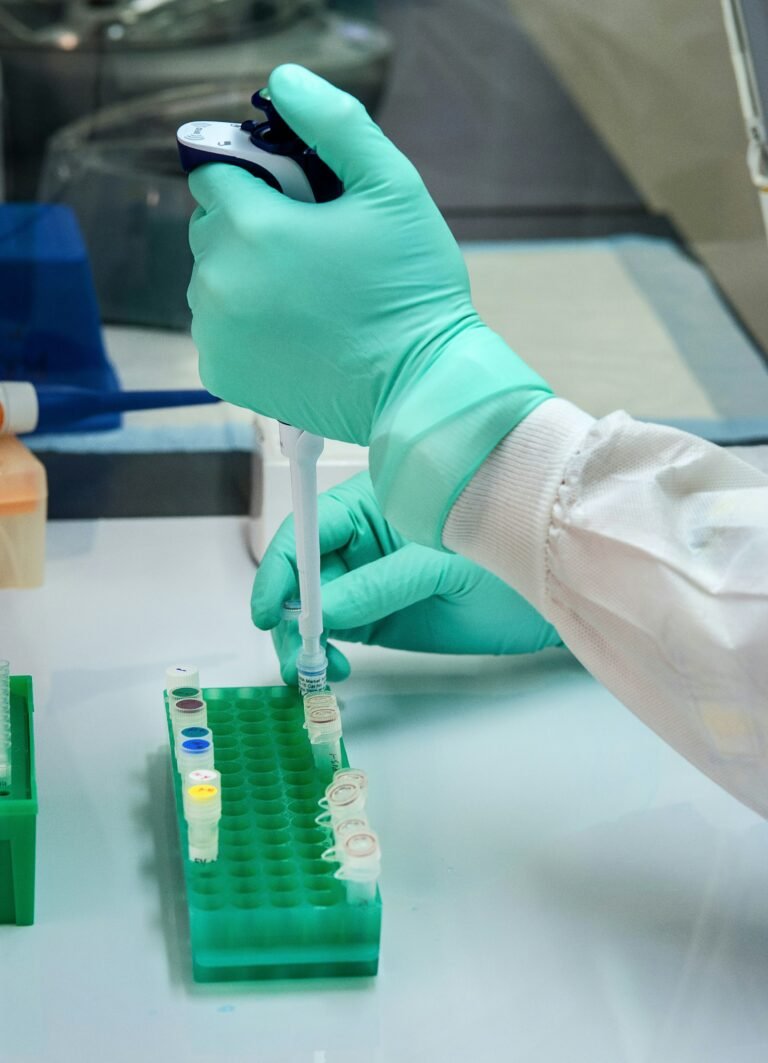Understanding sleep stages (REM, nREM,Sleep disorders,Sleep hygeine)

Stages of Sleep: What Happens in a Sleep Cycle:
- A sleep cycle consists of three non-rapid eye movement stages and one rapid eye movements stage.
- When you sleep you experience four to six sleep cycles in a night but they may differ in time duration.
- Sleep stages help the brain to relax and remove things from the day so that it can serve for multiple purposes.
You can do healthy tasks due to improve sleep stages.
You must also consider the duration of your sleep when thinking about sleep. Although there are many factors for considering about sleep and sleep duration is one of them.
Another important factor is to consider about how well is your sleep which means that whether you are getting a good quality sleep or not. If you do not feel relaxed after sleep then sleep quality can be a reason for that. You must experience smooth transitions in sleep stages and this ensures a quality sleep which makes you relaxed after the hectic works of the day.
As we know that sleep stage in crucial for making the mind and body relaxed and you feel refreshed to work on the day.
If you want to understand sleep disorders including sleep apnea, insomnia then you must understand the sleep cycle.
What Is the Sleep Cycle?
Sleep is does not occues in a fixed state but you go through several cycles and are made up of four stages. Usually a person goes through four to six sleep cycles according to National Library of Medicine, Biotech Information. The national Biotechnology Information has grown in the fields of science and health by making biomedical and genomic information available. Another important thing to note is that sleep cycles are not of equal durations but vary in their durations and an average sleep cycle is about 1 and half hour.
Are All Sleep Cycles the Same?
Sleep cycles vary as we move deeper into the sleep. Usually the intial cycle of sleep is of the shortest duration which is about 70 minutes to 100 minutes but as we progress the cycles become longer ranging between 90 to 120 minutes. Apart from that the time we spend in each sleep stage varies as the night progresses.
Sleep cycles can differ from individual to indivudual and from one night to another depending on a vast range of factors including age, sleep patterns and the amount of alcohol one intakes.
What Are the Sleep Stages in a Normal Sleep Cycle?
Sleep is divides into four stages such as rapid eye movement(REM) sleep and other 3 stages are non-REM(NREM) sleep. These stages are identifyed by checking the brain activity during sleep which shows unique patterns enabling us to differentiate between different stages of sleep.
| Sleep Stages | Type of Sleep | Other Names | Normal Length |
|---|---|---|---|
| Stage 1 | NREM | N1 | 1-7 minutes |
| Stage 2 | NREM | N2 | 10-25 minutes |
| Stage 3 | NREM | N3, slow-wave sleep (SWS), delta sleep, deep sleep | 20-40 minutes |
| Stage 4 | REM | REM Sleep | 10-60 minutes |
The table above shows the 4 cycles of an individual’s sleep and stages which is called the sleep architecture. If someone examines himself for sleep research then their sleep architecture can be displayed by a hypnogram or graph.
NREM Sleep Patterns
NREM sleep consists of 3 different stages. The higher the stage of NREM sleep the harder it is to wake a person up.
Stage 1
Stage 1 of sleep is also known as N1 and is the initial stage directly after falling asleep. The duration of this stage is between one minute to 7 minutes.
During the N1 sleep the body is still not completely relaxed but the body and brain activities start to slow down with durations of brief movements. There are slight changes in the activity of the brain as we fall into the sleep stage.
In the initial stage of sleep you can easily wake a person but if a person is not disturbed they can quickly shift to stage 2. As the night progresess and sleep is not disturbed then the person sleeping may quickly jump to further stage of sleep cycles.
Stage 2
Stage 2 refers to a more deep sleep state and a lowering of the body temperature, relaxed muscles, and slow breathing and heart rate. Meanwhile the brainwaves indicate a new pattern and your eye movement is zero. To sum up your brain activity slows but there are short parts of activity in brain. National Library of Medicine
During stage 2, or N2, the body enters a more subdued state including a drop in temperature, relaxed muscles, and slowed breathing and heart rate. At the same time, brain waves show a new pattern and eye movement stops. On the whole, brain activity slows, but there are short bursts of activity .
The duration of stage 2 is between 10 to 25 minutes and the first sleep cycle and each N2 stage can become longer during the night. As a whole about half of an individual’s sleep is in N2 stage.
Stage 3
Stage 3 sleep also called as N3 or deep sleep and it is harder to wake someone if the individual is in this stage of sleep. Muscle tone, pulse and breathing rate lowers and in N3 sleep as the body becomes more relaxed.
The brain activiy during this duration of time is easily recognizable and these waves are called delta waves. For this reason, stage 3 may also be called delta sleep or slow-wave-sleep.
According to experts this stage is important for a healthy sleep, making the body to recover and grow. It may also bolster the immune system and other important processe. Even though brain activity is lower there is proof that deep sleep helps for insightful thinking.
A person spends the most time in the deep sleep during the inital half of the night. During the early cycles, N3 stages commonly ends within 40 minutes, As you move further in sleep the stages get shorter in duration and more time gets spent in REM sleep instead.

REM Sleep Patterns: What Is REM Sleep?
In the REM sleep the activity of the brain rises and it is almost as if you are awake. Also the body experiences temporarily paralysis of muscles called atonia but the eyes and muscles controlling our breathing do not paralyze. Although the eyes are closed but the eyeballs keep moving which is why is called REM sleep.
REM sleep is considered to be the most important to cognitive working like memory. REM sleep is known as the part of sleep with the mos vivid dreams that can happen in any sleep stage, but they are less common and intense in non rem sleep stages.
In normal situations you do not enter a REM sleep stage until you have been asleep for about 1 and half hour. As the night progresses, REM stages get longer, in the second half of the night. Although the first REM stage may be quite short, but later stages get longer and can be as long as 1 hour. So to sum up REM stages take about a quarter part of sleep in adults.
Why Do the Sleep Stages Matter?
Sleep stages are crucial because they enable the brain and body to recover and grow. Failure to get enough of both deep sleep and REM sleep may be the reason that why some people have deep impact on health and thinking, emotions and physical health. Sleepers who wake up often during the sleep stages like people suffering from sleep apnea, may face difficulty to cycle into these deeper sleep stages. People having insomnia may not get enough sleep to accumulate the needed time in each stage.
What Affects Sleep Stages?
Although there is a certain pattern for sleep stages but it can vary from individual to individual depending on several factors which includes:
- Age: The duration of each stage changes significantly as the person grows older. Newborns REM duration is much longer and they fall into REM stage the moment they fall asleep. As age of a person grows they spend less duration in REM sleep.
- Recent sleep patterns: If a person gets a sleep that is not healthy for a long period of time then your sleep cycle is disturbed.
- Alcohol: Alcohol and certain drugs can affect the sleep architecture. An example is that alcohol reduces the REM sleep that is the initial stage of sleep but as the alcohol affects finished then a REM sleep restarts with long durations of REM stages.
- Sleep disorders: Sleep apnea, restless legs syndrome(RLS) and other medical conditions that cause awakenings during the night can disturb the sleep cycle.
How Can You Have a Healthier Sleep Cycle?
You can have a controlled sleep by taking measures for having a healthy transition through different stage
While you do not have full control of your sleep cycle, you can take steps to improve your chances of having a healthy progression through each sleep stage.
An important step is to work on making your sleep hygiene better which means how good is your sleep environment and sleep related daily routine. If you want to achieve a sleep schedule that is regular then you must get natural daylight and avoid alcohol before going to bed and reducin noise and light which assissts you to sleep without any disturbance and allows you to set up your sleep clock. Your mattress, pillows and sheets can also help to make you feel comfortable with your environment.
If you feel sleepy during the day or feel that you might have a sleep issue such as sleep apnea then it is essential to talk to a doctor who can help you guide you. You can figure out the main issues that help you bring your sleep routine back to normal.






